Your distinction between "conflicts that were solved automatically" and "deltas" is meaningless/does not exist.
There only exists "automatically resolved conflicts" and "not automatically resolved conflicts". And notice that due to different algorithms the set of changes that is put into each is different between plain git and KDiff3. KDiff3 is a bit more "aggressive" in what it accepts of close changes without giving up compared to plain git, although the difference has shrunken over the last couple of years, there used to be a greater difference.
Still it is not uncommon for git to mark something as a conflict it cannot resolve automatically, only for KDiff3 to declare that there are zero unresolved conflicts when started as difftool (or though my git-resolve-conflict-using-kdiff3 script).
So what is automatically resolved is not an exact science but rather heuristics that could and do change over time. And even when things are resolved automatically, this is only a guess on git's/KDiff3's part and there is absolutely no way of guaranteeing that the result is correct.
Consider the following merge conflict example:

After manually correctly resolving the function signature to be static void hello(unsigned int count, const char *message), which was the only not automatically resolved conflicts, the result is still not correct because the function goodbye contains a call to hello which only has one argument and is not updated to contain the new count argument.
So you cannot rely on automatically resolved conflicts to be correct, no matter how much you wish it to be true. And yes it means that you should review all changes even if it "takes you forever".
Now you could do a couple of things that justifies doing a lighter/faster review inside KDiff3.
- Review with
git diff --cached (or possibly git diff -U10 --cached) after exiting KDiff3.
- Run
git test on all commits on the branch to verify the integrity/correctness, especially after a rebase.
